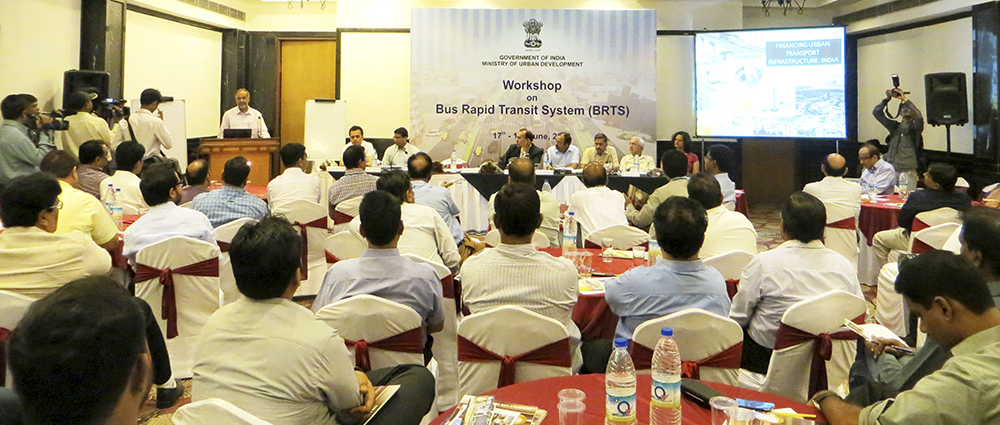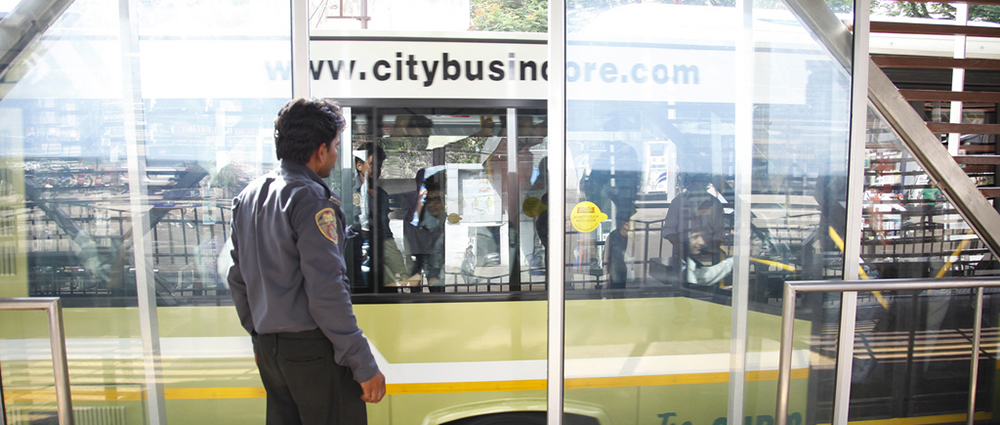Over the next decade, many Indian cities will see the use of personal motor vehicles double unless action is taken to improve sustainable transport options. ITDP estimates that 10,000 km of rapid transit are required in the 100 largest Indian cities to ensure that most new trips can be accommodated in public transport rather than personal motor vehicles. Recognizing the urgent need to rapidly expand mass transit, senior officials from cities across the country met recently to increase awareness about BRT and the features of high quality BRT corridors.
The workshop, organized by the Indian Ministry of Urban Development (MOUD) in partnership with the Institute of Urban Transport (IUT) and ITDP, brought together more than seventy secretaries, commissioners, chief engineers, planners, and managers from public transport agencies from cities in all stages of the BRT planning process.

During the workshop, participants visited the Indore BRT system. Known as iBus, the system incorporates many best practice features, including high quality central stations, a dedicated bus fleet, level boarding, and prepaid fare collection
Highlighting the importance of high quality design elements, event participants used ITDP’s to evaluate the Indore system, as well as scored existing or planned BRT systems in their own cities. The exercise provided a platform for cities to learn from one another, identify common pitfalls, and prioritize improvements that further enhance their systems. Key lessons learned from the exercise included the importance of getting the BRT Basics right, as well as the crucial process of integrating last mile connectivity. Complementing their BRT systems, more and more cities are showing interest in constructing better footpaths and implementing cycle sharing schemes to improve access for all users.
Even the highest scoring cities identified a host of features they could introduce to improve their system further.
“Yesterday I was running BRT in Indore,” said Sandeep Soni, Joint Collector of Indore and CEO of AICTSL, “but now I know I need to improve.”
The workshop also created an opportunity for ITDP to gather feedback about the BRT Standard, its applicability in the Indian context, and changes required to make the document a more useful tool for Indian cities as they are planning their BRT systems. Readers are encouraged to submit their comments on the BRT Standard to india@itdp.org.

ITDP’s Shreya Gadepalli introduced the BRT Standard, an evaluative tool that defines features of best practice BRT systems

Participants used the BRT Standard to evaluate the Indore BRT system as well as existing or proposed BRT systems in their respective cities.









